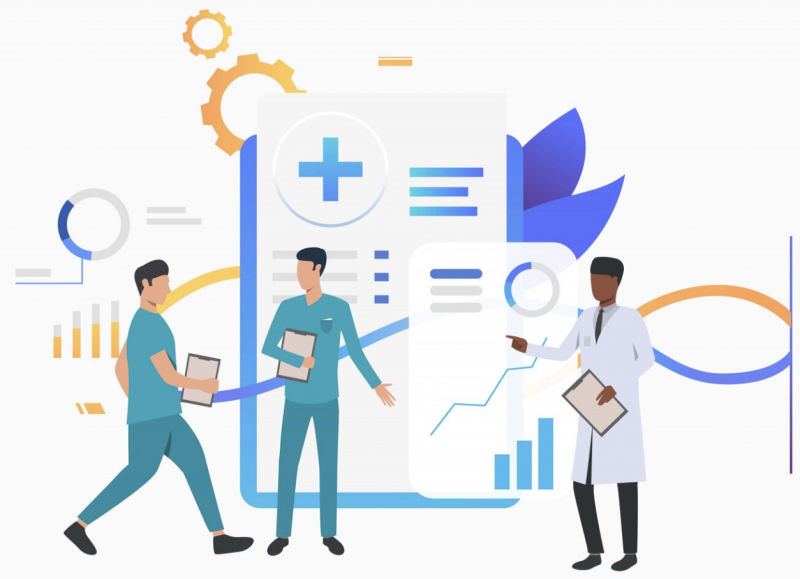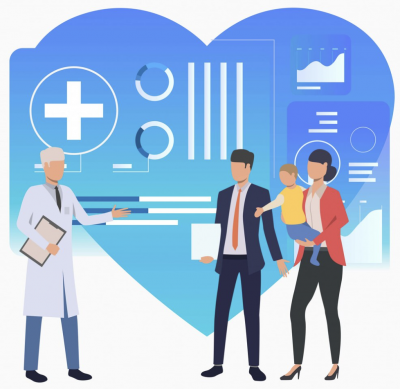Lean in Hospitals

Lean methodology in healthcare emphasizes continuous improvement, patient safety, and employee engagement without overburdening individuals. It aligns hospital missions with daily practices, enabling more efficient, cost-effective care delivery. However, successful implementation requires a cultural shift and ongoing commitment beyond tool adoption. Challenges may arise from cultural barriers and disconnects between stated values and actual practices. Lean isn’t a cure-all; sustainable improvements demand a holistic approach and mindset change toward continuous improvement and efficiency.
Why Do Hospitals Need Lean?
- Quality Improvement: Lean methodologies help hospitals enhance the quality of care by reducing errors and waiting times, ensuring patients receive more efficient and effective treatment.
- Employee Support: Lean removes obstacles for healthcare workers, allowing them to focus on patient care rather than navigating inefficient processes, reducing frustration and burnout.
- Cost Reduction: By optimizing operations and eliminating waste, Lean helps hospitals reduce costs and mitigate risks, leading to better financial outcomes and long-term sustainability.
- Interdepartmental Collaboration: Lean breaks down silos between different hospital departments, promoting better communication and collaboration, which enhances coordination of care and improves patient outcomes.
- Continuous Learning and Improvement: Lean fosters a culture of continuous improvement and learning, empowering employees to identify and address problems at their source, leading to ongoing enhancements in processes and patient care.
Problems in Healthcare:
Price Pressures and Cost Challenges:
- Rising Costs: Healthcare expenses soar, surpassing 16% of GDP in the US.
- Payer Responses: Cutting reimbursements fails to address underlying costs.
- Lean Solutions: Focus on reducing actual care provision costs.
- Market Dynamics: Lean promotes collaborative cost-saving efforts.
Coping with Employee Shortages:
- Widespread Shortages: Hospitals globally face critical staff shortages.
- Impact on Operations: Vacancies necessitate costly temporary hires.
- Employee Well-being: Overworked conditions compromise patient safety.
- Lean’s Role: Improves care delivery processes amid staffing challenges.
Poor Quality of Care:
- Universal Concerns: Preventable errors remain significant globally.
- Global Perspective: Substantial numbers of preventable deaths and errors reported.
- Lean’s Role: Offers a structured approach to quality and process improvement.
Solutions:
- Lean Approach: Rather than focusing solely on major issues, Lean methodology emphasizes addressing countless small problems to drive overall improvement.
- Actionable Solutions: Hospitals can make immediate progress by tackling everyday issues instead of waiting for grand political solutions.

- Lean Concept Application: Implementing Lean principles can lead to significant improvements by re-evaluating processes and involving employees in waste reduction and solution development. By tackling inefficiencies and waste, it fosters improved work processes, productivity, and patient outcomes.
- Resource Constraints: Despite demands for more resources, Lean thinking acknowledges the limitations of finite resources and seeks systemic improvements instead of merely increasing workload.
- System Improvement: Lean mindset shifts focus from blaming individuals for problems to optimizing systems, aiming for easier workflows and better outcomes for all.
- Driving Excellence with Lean Methodology in Healthcare: Effective Lean implementation, guided by strong leadership, empowers hospitals to enhance care delivery and achieve cost savings, embodying a dynamic force for excellence in healthcare.
Examples of the positive impact of Lean:
- Efficiency Gains: Hospitals can significantly enhance their operational efficiency without needing to increase staff or invest in new equipment. This not only saves costs but also ensures smoother and quicker service delivery.
- Streamlined Processes: Lean principles help in identifying and eliminating waste from processes, resulting in streamlined operations. This can lead to substantial reductions in cycle times, improving overall productivity and resource utilization.
- Improved Patient Safety: Lean methods often emphasize standardization and error reduction, leading to improved patient safety outcomes. By optimizing processes, hospitals can minimize the risk of errors and adverse events, ultimately enhancing the quality of care provided to patients.
- Enhanced Access to Care: Through Lean practices, healthcare facilities can drastically reduce waiting times for patients, ensuring timely access to necessary treatments and services. This not only improves patient satisfaction but also contributes to better health outcomes.
- Financial Benefits: Implementing Lean methodologies can yield significant financial benefits for healthcare organizations. By optimizing processes and reducing waste, hospitals can increase revenue, lower costs, and maximize resource utilization, ultimately improving their financial performance.
- Resource Optimization: Lean principles enable healthcare facilities to make efficient use of resources, including staff, equipment, and space. By reducing unnecessary delays and inefficiencies, hospitals can optimize resource utilization and improve overall capacity management.
- Cost Savings: Lean methodologies help in identifying and eliminating non-value-added activities, leading to substantial cost savings. These savings can be reinvested in patient care initiatives, infrastructure improvements, or other strategic priorities, ultimately benefiting both patients and healthcare providers.



